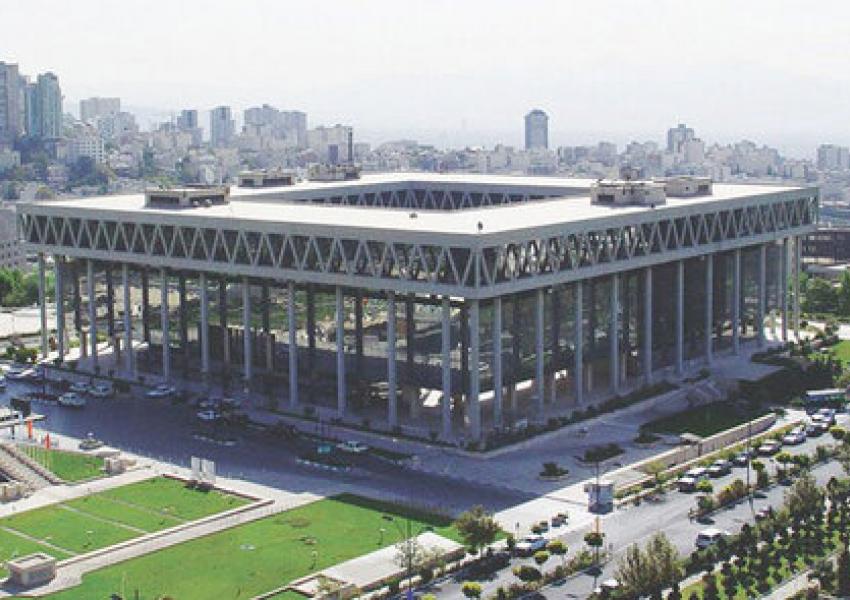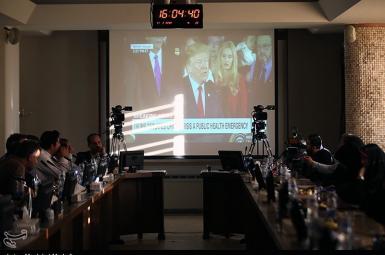
Iran State TV Run By Khamenei Appointees Censors Rouhani Officials, Others
Iran's state television which operates under the aegis of the office of Supreme Leader Ali Khamenei has been reportedly boycotting political figures close to Iran's reform camp, President Hassan Rouhani's administration, and independent cultural figures.
In two controversial cases this week, the state TV cut off the broadcast of a speech by Rouhani's spokesman Ali Rabiei and banned the appearance of a highly popular soccer player Ali Karimi who is a candidate for the elected chairmanship of the Iranian Soccer Federation.
Financed by taxpayers' money, the state TV is supposed to function like a public broadcaster, independent of factional interests. However, it has been a known fact since the 1990s that the state television and its managers who are appointed and supported by Khamenei or his aides favor hardline conservative figures and give them airtime to voice their ideas while depriving even some regime loyalists of a platform.
President Hassan Rouhani and former President Mahmoud Ahmadinejad repeatedly complained about the state TV's discriminatory approach. Recently relations between Rouhani and the state TV has been worse than ever as the president was portrayed by a hardline cleric on live TV as a drug addict. Rouhani's aides did not allow state TV Chief Ali Asgari to attend the weekly cabinet meetings before receiving his official apology.
Meanwhile, the state TV has been broadcasting programs against the 2015 nuclear agreement with the world powers, in which Rouhani takes prides as one of his government's achievements and he sees himself as one of the architects of the deal known as JCPOA.
The state TV recently annoyed Vice President Massoumeh Ebtekar who left its studios in protest after she was kept waiting for an interview for several hours. The President's communications office says Ebtekar who was in the studio to speak about the anniversary of the 1979 revolution, was clearly told that she cannot go on TV because of concerns expressed by the head of the state TV's Channel 3, Ali Foroughi who is a relative of Khamenei.
The state TV also cut off Hassan Khomeini's speech on the anniversary of the 1979 revolution was cut off. Not only he is the grandson of Ayatollah Ruhollah Khomeini, the founder of the Islamic Republic, but he is a young hopeful being groomed by reformists for the presidency.
In another development, the broadcast of live debates in the Majles was cut off when Vice President Mohammad Baqer Nobakht was explaining the administration's positions about the budget bill.
Proreform daily Arman-e Melli wrote on Wednesday February 24 that the state TV's approach was clearly based on factional interests.
However, the state TV's discriminatory approach is not limited to reformist figures or the Rouhani administration officials. This week, the state TV prevented Ali Karimi's presence in a couple of TV programs. Karimi is one of Iran's top soccer players who has publicly spoken against the state TV.
Karimi twice tried to have interviews with Internet-based channels as he needs some publicity for his campaign to win the chairmanship of Iran's Football Federation and end the IRGC's domination of the federation after several years.
However, the state TV banned the webcasts, using its recently acquired power to censor IPTV webcasters. Iranian newspapers say one of the reasons for the ban is that state TV officials do not like Karimi's criticism of financial corruption in the federation.
Earlier this week, the Iranian government levied hefty taxes on Internet service providers to fund the censorship of their own content by the state TV, to the tune of $120 million annually.
The ISPs immediately raised their prices for Internet services. In a way, in fact Iranian Internet users are now paying the state television to exercise censorship or ban the programs they like although those programs were to be aired on the Internet and not on state TV channels.








